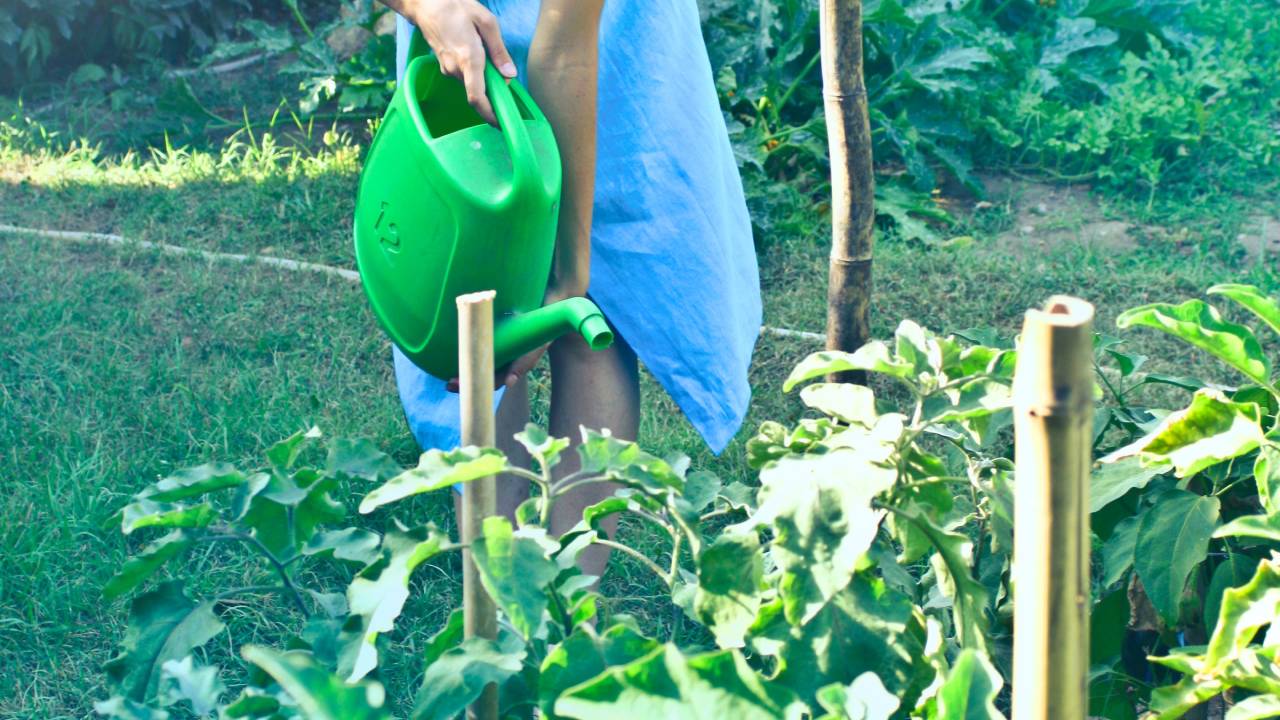To find out more, Jackson gave us 8 eco-friendly gardening tips that are easy to implement and will leave your garden greener and more sustainable.
Before you get started, make sure you have the best equipment at your disposal, including the best garden tools to tackle all horticultural tasks, the best cordless lawn mower for grass maintenance and the best gardening gloves for hand protection.
1. Create a compost system
First on the list is to create your own compost system. If you’re new to gardening, “composting is the natural process of recycling organic waste, such as kitchen scraps and yard trimmings, into nutrient-rich compost for your garden,” says Jackson. In the spirit of ‘waste not, want not’, composting is a great way to reduce the amount of waste sent to landfills while also providing plants with essential nutrients. It’s also incredibly easy to do, so “to create a compost system, designate a corner of your garden for a compost pile or use a compost bin to speed up the decomposition process.”
2. Plant diverse crops & native species
To keep your garden healthy, eco-friendly and looking beautiful throughout the seasons, plant diverse crops and native species. According to Jackson, “planting a variety of crops creates a more visually appealing garden and helps maintain soil fertility and prevent pest problems.” Similarly, native plants that are well adapted to local conditions often require “less water, fertilizer and pesticides, meaning you can conserve water, minimize chemical use and create a habit that supports local wildlife and attracts beneficial pollinators.”
3. Consider crop rotation & companion planting
Rotating your crops each year and companion planting are two ways to help your garden thrive in an eco-friendly way. Crop rotation helps “prevent soil depletion and reduce the risk of pests and diseases,” both factors that can lead to plants dying and soil losing its nutrients. Rotating your crops is a great way to avoid this and keep your plants and their insect friends happy.
Another tip is to start companion planting where you plant different plants in proximity to one another. There are many benefits to companion planting, as it can “help improve nutrient uptake, deter pests and increase pollination,” while also reducing the use of unnatural pest control measures and maximizing your garden space.

4. Try vertical planting
Another eco-friendly planting tip is to grow your plants vertically. Introducing wall planters, hanging baskets, trellises and living walls to your garden expands your outdoor space and allows you to grow more in different areas of your garden. In addition to making your garden look more green and attractive, vertical planting can also “help improve air circulation and sunlight exposure, leading to healthier plants.”
5. Get mulching
Once you’ve planted your seeds or pruned your existing plants, give them a generous mulching. Jackson recommends “applying a layer of organic mulch, such as wood chips or straw, around your plants to retain moisture, regulate soil temperature, and suppress weed growth.” Mulching also helps conserve water, adds nutrients to soil and reduces soil erosion.
6. Choose organic, chemical-free pest control solutions
After you’ve put in the work to your garden, it can be annoying when your plants are invaded by aphids, earwigs and other common garden pests. To help keep these visitors at bay and away from your garden, Jackson says to “avoid using synthetic pesticides and opt for organic methods to control pests. Instead, introduce beneficial insects, like ladybugs and lacewings, to control pests naturally. You can also use homemade remedies, like a mixture of water and soap, to deter insects.”
7. Collect rainwater for irrigation
During spring and summer, your garden needs more water to deal with the hot temperatures. But the constant watering of your grass can be wasteful and rack up your water bills. Instead, “collect rainwater in barrels or other containers, as it’s a free, natural resource that can help you conserve water. Additionally, rainwater is free from chemicals found in tap water, making it healthier for your plants.”
8. Use solar-powered garden lights
To light up your garden while reducing your electricity consumption, invest in solar-powered garden lights. “Solar lights charge during the day and automatically turn on at night, providing eco-friendly and cost-effective illumination,” says Jackson.